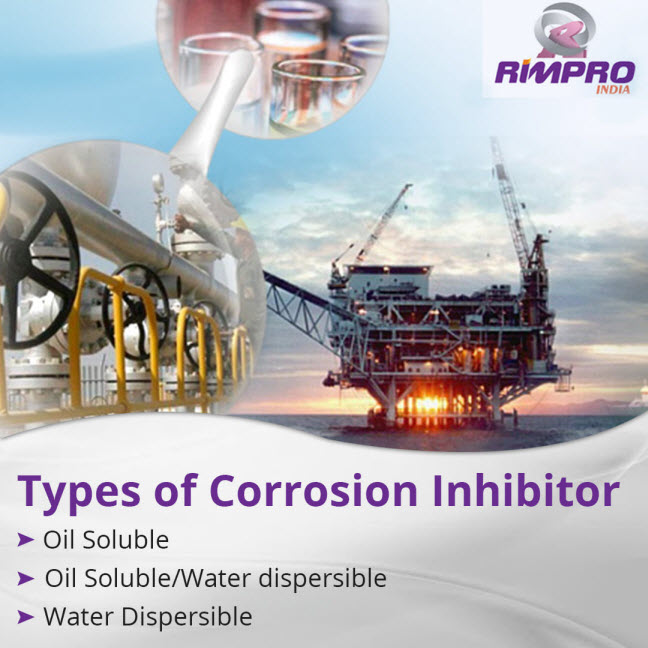 Menu
Menu
How to Choose the Right Corrosion Inhibitor for Your Application?
Corrosion is a pervasive and costly problem that affects various industries and applications. Whether it's the oil and gas sector, water treatment systems, automotive manufacturing, or construction materials, corrosion can cause equipment failure, reduced efficiency, and significant financial losses. Fortunately, corrosion inhibitors offer a valuable solution to combat this destructive process. However, with numerous corrosion inhibitors available in the market, selecting the right one for your specific application can be a daunting task.
Choosing the right corrosion inhibitor for your application is an important decision. But it’s not easy to determine which is best suited for your application. The first thing you need to do is get familiar with the different types of corrosion inhibitors available on the market.
There are many different types of corrosion inhibitors, each with a specific use and type of application. Some of the most common are anodic, cathodic, and mixed.
Anodic Corrosion Inhibitors
The most popular anodic corrosion inhibitors are chromium, molybdate, nitrate, tungstate, and zinc. These chemicals are able to stop the anodic corrosion process by forming a thin coating on the surface of the metal. They also block the electrochemical reaction to prevent the metal from dissolving into the corrosive solution.
Cathodic Corrosion Inhibitors
There are several different types of cathodic corrosion inhibitors, including borates, phosphonates, and polyphosphates. These chemicals also stop the anodic corrosion process by preventing the electrochemical reaction between the anode and the cathode.
They are effective and widely used in numerous applications across the industrial and consumer sectors. For example, they are used in boilers to prevent acid from forming, paints to give durability, antiseptics to counter microbial corrosion, and oil refineries to help protect against hydrogen sulphide.

Factors to Consider When Choosing Corrosion Inhibitors
Selecting the most suitable corrosion inhibitor for your application requires careful consideration of various factors. First and foremost, compatibility with the application is crucial. The inhibitor should not adversely affect the material's performance or other chemicals involved in the process. Additionally, environmental considerations, such as temperature, pH, and exposure to other chemicals, should be considered. Cost-effectiveness is also an essential factor to consider, as it ensures long-term viability and sustainability.
Evaluating Corrosion Inhibitor Performance
Before making a final selection, it is crucial to evaluate the performance of corrosion inhibitors. Laboratory testing methods, such as electrochemical measurements, weight loss analysis, and salt spray tests, can provide valuable insights into the inhibitor's effectiveness. Field testing and case studies can further validate the inhibitor's performance in real-world applications, ensuring its reliability and compatibility with the specific conditions it will encounter.
Selecting the Right Corrosion Inhibitor
To choose the right corrosion inhibitor, a systematic approach is necessary. It begins by assessing the corrosion mechanism, which involves understanding the electrochemical processes and identifying the specific corrosion types involved. This knowledge helps in selecting an inhibitor that can effectively target the corrosion mechanism. Furthermore, considering material compatibility is essential. Some inhibitors may work well with certain materials but can be ineffective or even detrimental to others.
Consulting with corrosion experts or suppliers can provide valuable guidance and recommendations tailored to your specific application.
Application-Specific Considerations
Different industries and applications have unique corrosion challenges. For example, in the oil and gas industry, corrosion inhibitors must withstand harsh environments and resist the corrosive effects of gases, liquids, and high temperatures. Water treatment systems require inhibitors that can prevent the formation of scale and minimize the risk of microbial-induced corrosion. In the automotive and transportation sector, corrosion inhibitors are crucial for protecting vehicles and infrastructure from rust and deterioration caused by road salts, moisture, and atmospheric conditions.
Handling and Storage of Corrosion Inhibitors
When working with corrosion inhibitors, it is important to follow proper handling and storage practices to ensure safety and maintain their effectiveness. Safety precautions should be taken, such as wearing protective clothing and using appropriate ventilation when handling concentrated inhibitors. It is also essential to store inhibitors in suitable containers in a cool, dry place away from direct sunlight and incompatible chemicals. Checking the expiration dates and adhering to recommended storage conditions will help maximize the inhibitor's shelf life and ensure its performance when needed.
